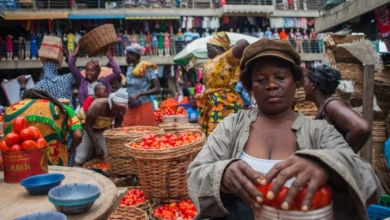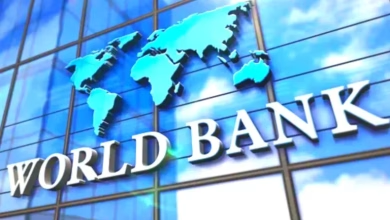Ghana Inflation Expected To Ease Despite Currency Pressures

- Apakan Securities predicts continued disinflation
- Ghana's annual inflation rate has generally been falling
- The Ghanaian cedi has weakened against the US dollar
Investment firm Apakan Securities predicts continued disinflation (a decrease in inflation) for Ghana in May 2024, despite ongoing pressure on the Ghanaian cedi (currency).
Central Bank Takes Cautious Approach
Analysts at Apakan Securities interpret the Bank of Ghana’s (BoG) latest monetary policy statement as cautious and pragmatic. They see the bank’s decision to maintain interest rates and implement a dynamic Cash Reserve Ratio (CRR) as a strategic move to control inflation while navigating economic uncertainties.
Inflation on a Downward Trend
Despite some volatility in the first four months of 2024, Ghana’s annual inflation rate has generally been falling. The latest Consumer Price Index (CPI) data for April showed an annual inflation rate of 25%, down 0.8% from March. However, the monthly inflation rate rose to 1.8%, indicating potential short-term risks.
Food Prices Ease, Core Inflation Mixed
Food inflation dropped significantly in April, while non-food inflation rose slightly. Core inflation, which excludes volatile food and energy prices, showed mixed signals, rising in March and then falling in April.
Central Bank Navigates Complexities
Apakan Securities views the BoG’s approach as cautious as it seeks to control inflation while dealing with external pressures. The Ghanaian cedi has weakened against the US dollar in the second quarter of 2024, exceeding earlier projections.
Cedi Depreciation Explained
The cedi’s depreciation is attributed to factors like increased demand for foreign exchange, high energy sector arrears, and concerns about the progress of Ghana’s external debt restructuring.
Weaker External Sector
The cedi’s performance also reflects a weaker external sector. Slower export growth coupled with stronger import growth has resulted in a lower trade surplus compared to the same period last year.
Reasons for Optimism
Despite the currency depreciation, Ghana’s gross international reserves have increased, providing a buffer. Both the Ministry of Finance and the BoG have assured Ghanaians of increased foreign exchange supply and a more stable exchange rate in the coming weeks.






